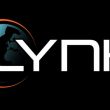TA releases rebanding handbook
The Transition Administrator (TA) team overseeing the 800 MHz rebanding process yesterday released a reconfiguration handbook to provide relocating licensees guidance about their responsibilities and the steps they must take to be paid for their efforts.
Detailed within the 58-page handbook are guidelines for the two phases of the process: one for planning and negotiation and another for implementation. Wave 1 licensees in the 1-120 channels are encouraged to begin planning with Nextel Communications–the wireless carrier paying for rebanding–and the TA immediately.
“The primary purpose of this is to let licensees know what the process will be,” said Brett Haan of BearingPoint, head of the TA team. “We also wanted to explain our role and let licensees know that, if they have any questions, they can ask us as the independent body. Licensees should always feel free to contact us.”
As expected, the TA handbook requests that licensees negotiate deals with Nextel, recommends that licensees let Nextel pay third-party vendors directly and dictates that licensees should be prepared to provide documented evidence to justify any internal, rebanding-related costs they want Nextel to pay. All licensees are asked to provide Nextel and TA officials with a point of contact throughout the process. Nextel is obligated to pay licensees’ costs to reband. Licensees can secure funds from Nextel to cover estimated planning and negotiation costs by submitting a request for planning funding, the terms of which would have to be negotiated with Nextel and approved by the TA.
Covered planning costs include expenses associated with conducting an inventory and costs for legal and engineering consulting work. Although licensees are not required to submit a request for planning funding, those who do not “will be at risk [of] not being reimbursed if these costs are subsequently determined not to be acceptable by Nextel and the TA.”
Although Nextel will pay for inventory costs, the handbook indicates that serial-number detail–something many public-safety officials have recommended securing–“generally will not be an acceptable expense.” Internal costs are to be calculated on an hourly basis, with overtime rates paid only if the entity normally pays the overtime to the employee. An hourly rate for a salaried employee is to be determined by dividing the employee’s salary by 2080.
Efforts to use rebanding funds to upgrade equipment during the rebanding process are discouraged, but the handbook said it will be allowed. However, a licensee must determine how much normal rebanding would have cost and demonstrate that the upgrade will not delay the overall rebanding process to receive approval. Costs of acceptance tests also can be covered, but the scope and cost of such tests should be included in a negotiated agreement with Nextel, according to the TA handbook. As for so-called “drive tests” to determine comparable coverage before and after rebanding, the handbook indicates that simple mic tests may not provide the empirical evidence sought by the TA.
“A formal test using a well-documented route and automated signal-measurement and data-collection procedure may be the only objective way to compare coverage,” the handbook states. If such tests are conducted, the handbook indicates that they should be conducted just before the rebanding and again after the process is complete.
One of the most-asked questions not addressed in the handbook is whether equipment that needs to be replaced should be replaced by equipment in Nextel’s storage facility in Abilene or new “dumbed down” radios being manufactured by vendors like Motorola.
Haan said some questions raised in the wake of the handbook’s release will be answered by the TA in a supplementary document scheduled to be distributed in late May. However, other aspects may be decided in negotiations, he said.
“I think a lot of the specifics will be addressed on a license-by-license basis, not a blanket basis,” Haan said. In fact, Haan noted a licensee should not be discouraged by handbook guidelines indicating that some items typically won’t be funded, if the licensee believes the item is integral to its particular rebanding circumstance.
“If the licensee can demonstrate that something is necessary and reasonable, it will be reimbursed,” he said.
In addition to the handbook, the TA yesterday issued a press release summarizing the frequencies that economic area (EA) specialized mobile (SMR) radio licensees can opt to occupy after rebanding is completed. Affected SMR licensees are required to make their election by May 13.
Both the handbook and the EA press release are available at the TA’s web site, www.800ta.org.

















